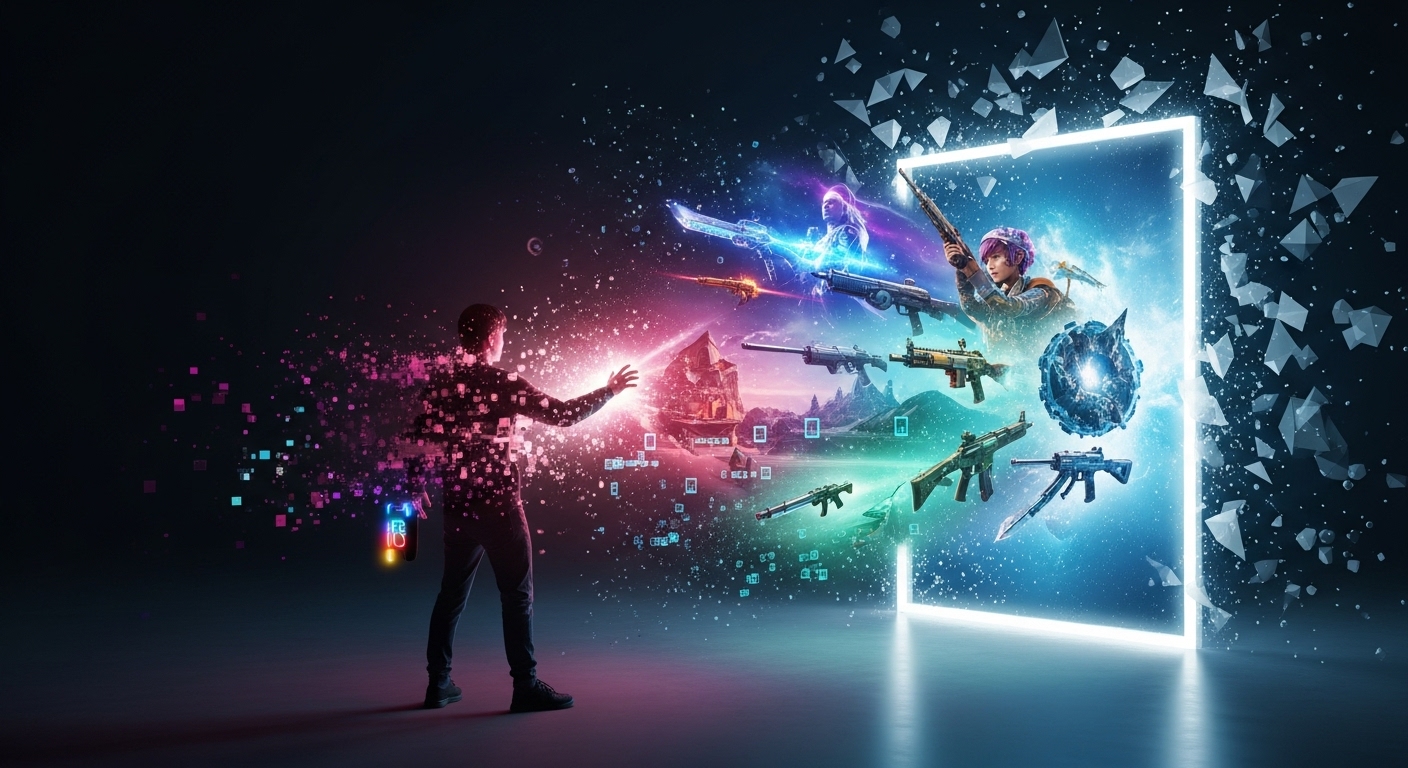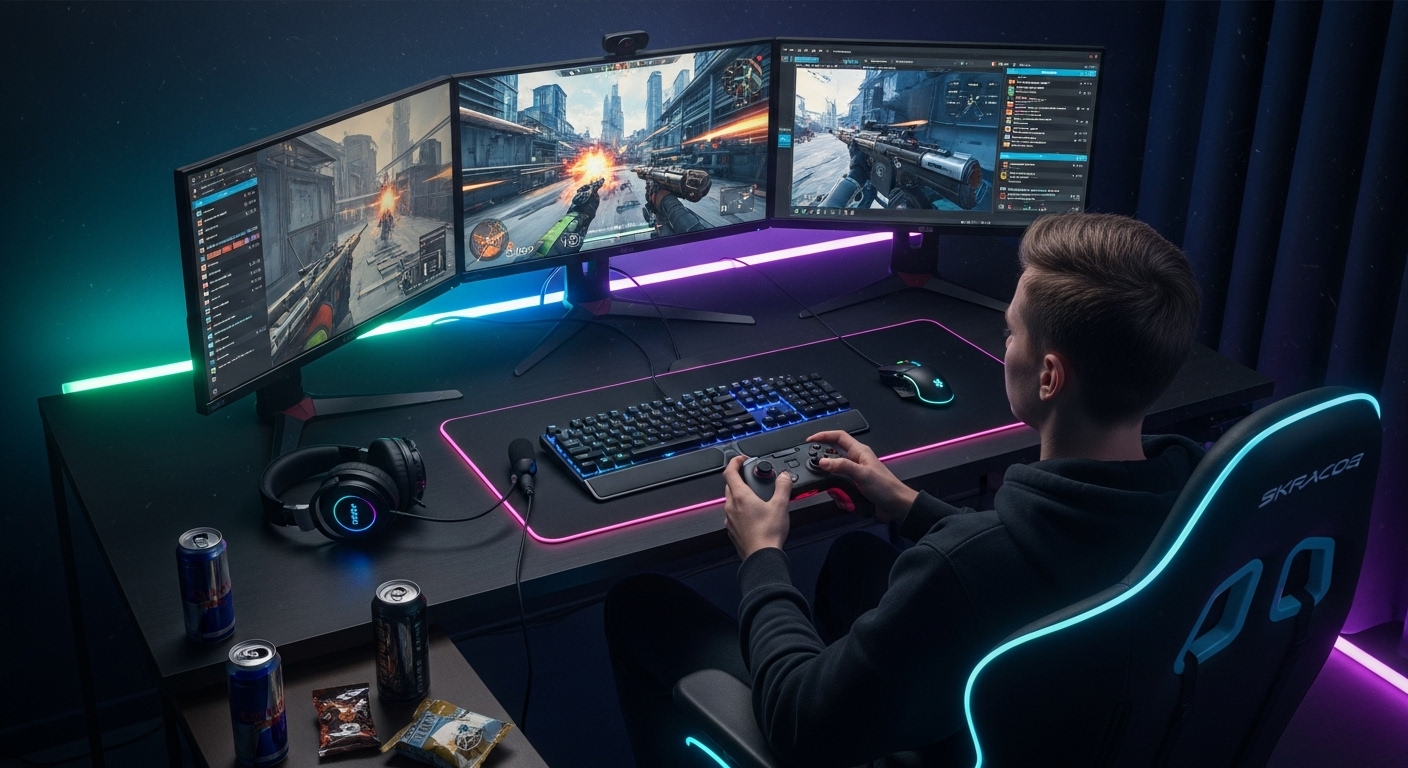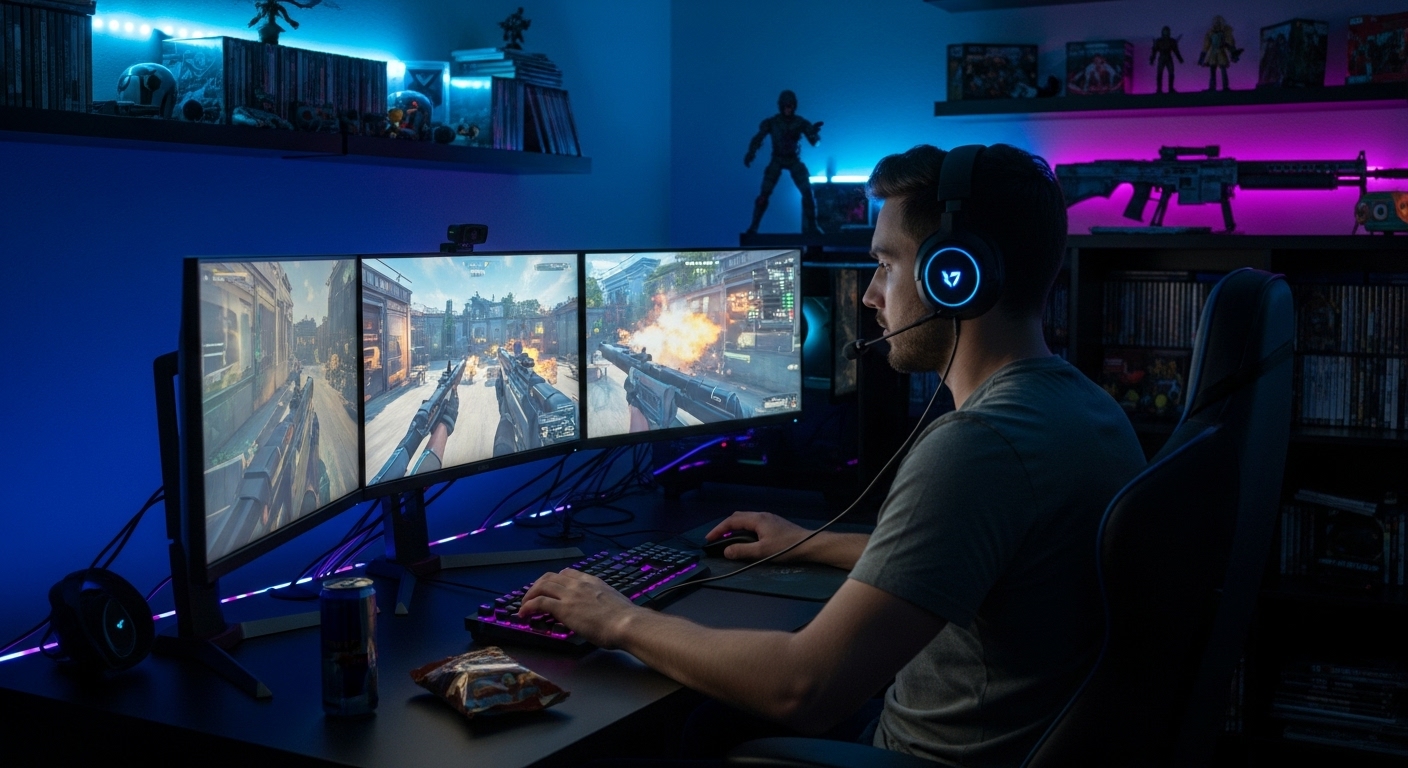Gaming has evolved from simple beeps and pixels to massive virtual universes where millions of players interact, compete, and create. What began as a niche pastime in the 1970s has grown into one of the most influential industries in the world. Today, gaming is not just a form of entertainment—it is a culture, a lifestyle, and even a career path for many. In this extensive exploration, we’ll dive deep into the evolution of gaming, its social and psychological effects, the rise of esports, the role of technology, and the endless creativity it inspires across generations.
The Origins of Gaming
The story of gaming begins in the laboratories and universities of the mid-20th century. In 1958, physicist William Higinbotham created “Tennis for Two,” a rudimentary tennis simulation displayed on an oscilloscope. Just a few years later, in 1962, “Spacewar!” emerged at MIT, a space combat game that laid the groundwork for what was to come.
But it wasn’t until the 1970s that video games truly entered public consciousness. Atari’s Pong (1972) was one of the first arcade hits. The concept was simple—two paddles, one ball—but its impact was enormous. From there, gaming began spreading into living rooms with consoles like the Atari 2600 and the Nintendo Entertainment System. These early systems were primitive by today’s standards, but they sparked a revolution.
The Golden Age of Consoles
The 1980s and 1990s were often referred to as the “Golden Age of Gaming.” Iconic characters like Mario, Sonic, Link, and Pac-Man were born during this time. Gaming became colorful, competitive, and creative. The Super Nintendo Entertainment System (SNES), Sega Genesis, and later, the PlayStation, reshaped what interactive entertainment could be.
The introduction of 3D graphics in the mid-90s changed everything. Games like “Super Mario 64” and “The Legend of Zelda: Ocarina of Time” showed that video games could be immersive worlds, not just simple levels. Players began to experience emotional storytelling, epic music, and complex gameplay mechanics that felt alive.
PC Gaming: The Rise of the Keyboard Warrior
While consoles were dominating the living room, personal computers quietly built their own empire. The flexibility of PCs allowed developers to experiment with strategy games, simulations, and role-playing adventures that couldn’t fit into console cartridges. Titles like “Doom,” “Warcraft,” and “The Sims” defined eras of PC gaming.
PC gaming also introduced a new level of community and creativity. Modding became popular—players could tweak or entirely transform games using code and design tools. This spirit of customization gave birth to phenomena like “Counter-Strike,” which started as a mod for “Half-Life,” and became one of the most played games in history.
The Internet Changes Everything
When the internet merged with gaming in the late 1990s and early 2000s, the entire landscape transformed. No longer were players limited to local multiplayer or taking turns on the same couch. Now, anyone could play with anyone, anywhere in the world.
Online gaming created new genres and communities. Massive Multiplayer Online Role-Playing Games (MMORPGs) like “World of Warcraft” allowed millions to explore vast fantasy worlds together. Competitive online shooters like “Halo,” “Call of Duty,” and “Counter-Strike” made multiplayer competition the new norm. Voice chat, friend lists, and clans became central to gaming culture.
Mobile Gaming Revolution
The next big wave arrived with smartphones. Suddenly, gaming wasn’t confined to consoles or PCs—it was in everyone’s pocket. Simple yet addictive games like “Angry Birds,” “Candy Crush,” and “Clash of Clans” attracted millions of casual players who had never considered themselves gamers before.
Mobile gaming blurred the lines between demographics. Age, gender, and background no longer mattered. Everyone, from kids to grandparents, could enjoy a quick game during their commute or break time. This democratization of gaming made it one of the most profitable industries on Earth.
The Power of Storytelling in Games
What separates a good game from a great one? For many players, it’s the story. Games have evolved into one of the most powerful storytelling mediums. Titles like “The Last of Us,” “Red Dead Redemption 2,” and “God of War” are celebrated for their emotional depth, cinematic presentation, and complex characters.
Unlike movies or books, games give players agency—the ability to shape outcomes, make moral choices, and experience the consequences. This interactivity creates empathy and connection in ways no passive medium can match. When a player spends dozens of hours building relationships with characters, their victories and losses feel deeply personal.
Esports: The Rise of Competitive Gaming
Few could have predicted that playing video games competitively would become a global spectacle. Esports, once a niche hobby, now fills stadiums and attracts millions of online viewers. Games like “League of Legends,” “Dota 2,” “Valorant,” and “Fortnite” have transformed players into celebrities.
Professional gamers train for hours daily, honing reflexes, strategy, and teamwork. Esports tournaments offer multimillion-dollar prize pools and sponsorship deals. The industry has even been recognized by universities, which now offer scholarships for esports athletes. What was once considered a waste of time is now a legitimate career.
Streaming and Content Creation
Platforms like Twitch and YouTube Gaming have turned gaming into a performance art. Streamers broadcast their gameplay live to audiences of thousands or even millions. The connection between streamer and viewer creates a unique form of entertainment that blends gaming, personality, and community interaction.
Content creation also changed how games are marketed and played. A small indie game can explode in popularity if a popular streamer plays it. Games like “Among Us” and “Minecraft” owe much of their cultural impact to the viral power of online content creators.
The Social Side of Gaming
Gaming is no longer a solitary activity. It’s a shared experience that connects people across continents. Online multiplayer games foster friendships, rivalries, and communities that can last for years. Voice chats, guilds, and social media groups all enhance this sense of connection.
For many, gaming provides a space to belong—a digital neighborhood where people can express themselves freely. In a world that often feels divided, gaming unites individuals through shared passion, teamwork, and fun.
The Dark Side of Gaming
Like any powerful medium, gaming has its challenges. Excessive gaming can lead to addiction, social isolation, and physical health issues. Online toxicity, harassment, and unfair behavior can also tarnish the experience. It’s important to recognize these issues and promote balance and respect within the community.
Developers and platforms have started addressing these problems by implementing parental controls, anti-toxicity measures, and moderation tools. Education and awareness are key—gaming should enhance life, not replace it.
The Role of Technology in Shaping the Future
Advancements in technology continue to push gaming to new heights. Virtual Reality (VR) and Augmented Reality (AR) are bringing players closer to the action than ever before. Devices like the Oculus Quest and PlayStation VR allow for fully immersive experiences that blur the line between physical and digital worlds.
Artificial Intelligence is also reshaping game design. Smarter enemies, dynamic storytelling, and adaptive gameplay make every session unique. Cloud gaming services now let people stream high-quality games without expensive hardware, making top-tier gaming accessible to anyone with an internet connection.
Indie Games and Creative Freedom
Not all great games come from massive studios. Indie developers—often small teams or even solo creators—have brought innovation and heart to gaming. Without the pressure of corporate expectations, indie games explore unique ideas and art styles. Games like “Celeste,” “Hades,” “Undertale,” and “Stardew Valley” prove that creativity and emotion can outshine even the biggest blockbusters.
These games often focus on storytelling, player emotion, and unique mechanics, resonating deeply with audiences. Indie gaming reminds us that passion, not budget, defines greatness.
Gaming and Mental Health
Contrary to old stereotypes, gaming can have positive effects on mental health. Games provide relaxation, social interaction, and even cognitive benefits. Puzzle and strategy games enhance problem-solving skills, while cooperative games build communication and teamwork.
For many, gaming serves as a safe escape from daily stress or anxiety. Online support communities within games can also provide emotional comfort and friendship. However, moderation is key—like all activities, gaming should complement life, not consume it.
Representation and Diversity in Games
The gaming world has made great strides toward inclusivity and representation. Characters from diverse backgrounds, genders, and cultures now take center stage. Developers are more aware of their responsibility to reflect the world’s diversity and create stories that resonate with everyone.
This shift has enriched the gaming experience, making it more relatable and powerful. Players can now see themselves represented as heroes, leaders, and adventurers. It’s a positive step toward building a truly global gaming culture.
The Economic Power of Gaming
Gaming is now one of the largest industries in the world, surpassing even movies and music in revenue. From console sales and mobile microtransactions to esports sponsorships and digital downloads, gaming drives billions of dollars annually.
But its economic power isn’t just about money. It creates jobs—developers, designers, artists, writers, voice actors, streamers, and countless others contribute to the ecosystem. Entire cities host gaming conventions, tournaments, and expos, bringing tourism and innovation together.
The Future of Gaming
What lies ahead for gaming? The horizon is full of possibilities. With the integration of AI, augmented reality, and even brain-computer interfaces, gaming could become more immersive than ever. Virtual worlds may evolve into full-blown social spaces, where entertainment, education, and creativity coexist.
Cross-platform play will continue to unify players, while accessibility features ensure that everyone—regardless of ability—can participate. The line between player and creator may blur as tools allow anyone to build and share their own games.
The future of gaming is not just about technology, but imagination. The next great innovation could come from a student, a small indie team, or even an AI collaborator. The story of gaming has only just begun.
Conclusion: More Than Just a Game
Gaming has transcended its origins as mere entertainment. It is art, sport, storytelling, and community all rolled into one. It connects people, challenges minds, and inspires creativity. From retro arcades to virtual worlds, gaming has evolved alongside humanity’s own desire for exploration and expression.
At its core, gaming is about more than winning or losing. It’s about experiencing worlds, sharing adventures, and building connections that last beyond the screen. Whether you’re a casual mobile player, a dedicated esports competitor, or a nostalgic retro fan, you are part of this incredible journey.
Gaming is not just the future—it is the present, alive with pixels, passion, and possibility.


